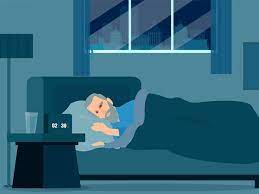The Link Between Lack of Motivation and Depression
Feeling unmotivated from time to time is a common experience for many people. However, when this lack of motivation becomes persistent and starts affecting daily life, it could be a sign of a deeper issue such as depression.
Depression is a mental health condition that can manifest in various ways, including feelings of sadness, hopelessness, and loss of interest in activities that were once enjoyable. One of the key symptoms of depression is a pervasive lack of motivation.
Individuals struggling with depression often find it challenging to muster the energy and drive to engage in tasks or pursue goals. This lack of motivation can create a cycle where the individual feels overwhelmed by even simple responsibilities, leading to increased feelings of guilt and inadequacy.
It’s important to understand that lack of motivation in depression is not simply a matter of laziness or procrastination. It is a symptom of an underlying mental health condition that requires attention and support. Seeking help from mental health professionals, such as therapists or counselors, can provide strategies for managing depression and rebuilding motivation.
In addition to professional help, lifestyle changes can also play a significant role in addressing lack of motivation associated with depression. Regular exercise, proper nutrition, adequate sleep, and engaging in activities that bring joy and fulfillment can all contribute to improving mood and motivation levels.
By recognizing the link between lack of motivation and depression, individuals can take proactive steps towards better mental health. Remember, reaching out for support is not a sign of weakness but rather a courageous step towards healing and well-being.
Understanding Lack of Motivation in Depression: Answers to 8 Common Questions
- What are the common symptoms of lack of motivation in depression?
- How does lack of motivation impact daily functioning in individuals with depression?
- What are the potential causes of lack of motivation in depression?
- Is there a difference between normal feelings of laziness and lack of motivation due to depression?
- Can therapy or counseling help address lack of motivation associated with depression?
- Are there lifestyle changes that can help improve motivation levels in individuals with depression?
- What role does medication play in managing lack of motivation linked to depression?
- How can friends and family support loved ones experiencing lack of motivation as a symptom of depression?
What are the common symptoms of lack of motivation in depression?
Common symptoms of lack of motivation in depression include a persistent feeling of apathy or indifference towards activities that were once enjoyable, difficulty initiating tasks or completing them, a sense of heaviness or fatigue even with simple responsibilities, and a general lack of enthusiasm for setting and achieving goals. Individuals may also experience feelings of hopelessness, low self-esteem, and self-criticism related to their inability to feel motivated. It’s important to recognize these symptoms as potential signs of depression and seek professional help to address the underlying mental health condition.
How does lack of motivation impact daily functioning in individuals with depression?
The lack of motivation experienced by individuals with depression can significantly impact their daily functioning in various ways. Tasks that were once routine or manageable may feel overwhelming and insurmountable, leading to difficulties in maintaining responsibilities at work, home, or in relationships. Simple activities such as getting out of bed, preparing meals, or completing work assignments can become daunting challenges. This pervasive lack of motivation can also affect social interactions and self-care practices, further exacerbating feelings of isolation and low self-esteem. Overall, the impact of lack of motivation on daily functioning for individuals with depression underscores the importance of seeking support and implementing strategies to manage this symptom effectively.
What are the potential causes of lack of motivation in depression?
In individuals experiencing depression, the lack of motivation can stem from various potential causes. Neurochemical imbalances in the brain, particularly involving neurotransmitters like serotonin and dopamine, can play a significant role in dampening motivation levels. Negative thought patterns and cognitive distortions common in depression can also contribute to feelings of hopelessness and apathy towards goal-directed activities. Additionally, the physical symptoms of depression, such as fatigue and sleep disturbances, can further drain energy and hinder motivation. Social factors like isolation, lack of support, or stressful life events may exacerbate feelings of disinterest and demotivation. Understanding these multifaceted causes is crucial in addressing and managing the complex relationship between lack of motivation and depression.
Is there a difference between normal feelings of laziness and lack of motivation due to depression?
When considering the difference between normal feelings of laziness and lack of motivation stemming from depression, it’s essential to recognize that they originate from distinct sources. While laziness may be a temporary state characterized by a reluctance to engage in activities, lack of motivation associated with depression is often persistent and pervasive, impacting various aspects of daily life. Individuals experiencing depression-related lack of motivation may struggle to find joy or purpose in activities they once enjoyed, feeling overwhelmed by even simple tasks. It is crucial to acknowledge that addressing this lack of motivation involves understanding the underlying mental health condition and seeking appropriate support and intervention to promote healing and well-being.
Can therapy or counseling help address lack of motivation associated with depression?
Therapy or counseling can be highly effective in addressing the lack of motivation associated with depression. Mental health professionals are trained to understand the complex interplay between mood disorders like depression and motivational challenges. Through therapy sessions, individuals can explore the underlying factors contributing to their lack of motivation, develop coping strategies, set achievable goals, and work towards rebuilding a sense of purpose and drive. Therapists provide a supportive and non-judgmental space for individuals to process their emotions, gain insights into their thought patterns, and learn practical techniques to overcome barriers to motivation. Seeking therapy or counseling for lack of motivation linked to depression can be a valuable step towards reclaiming one’s mental well-being and rediscovering a sense of direction in life.
Are there lifestyle changes that can help improve motivation levels in individuals with depression?
Yes, there are lifestyle changes that can help improve motivation levels in individuals with depression. Engaging in regular physical activity, such as exercise or yoga, has been shown to boost mood and increase energy levels. Maintaining a balanced diet rich in nutrients can also support overall well-being and enhance motivation. Establishing a consistent sleep routine and ensuring adequate rest can improve cognitive function and emotional resilience. Additionally, participating in activities that bring joy and fulfillment, whether it’s a hobby, spending time with loved ones, or practicing mindfulness, can help combat feelings of apathy and increase motivation. By incorporating these lifestyle changes into daily routines, individuals with depression can take proactive steps towards improving their motivation levels and overall mental health.
What role does medication play in managing lack of motivation linked to depression?
Medication can play a significant role in managing lack of motivation linked to depression. In cases where depression is severe and significantly impacts daily functioning, antidepressant medication may be prescribed to help regulate neurotransmitters in the brain that affect mood and motivation. These medications can help alleviate symptoms of depression, including lack of motivation, by restoring chemical imbalances that contribute to the condition. It’s important for individuals considering medication to consult with a healthcare provider to determine the most appropriate treatment plan based on their specific needs and circumstances. Additionally, medication is often used in conjunction with therapy and other lifestyle changes to address the root causes of depression and support overall mental health and well-being.
How can friends and family support loved ones experiencing lack of motivation as a symptom of depression?
Supporting loved ones experiencing lack of motivation as a symptom of depression is crucial in their journey towards healing. Friends and family can offer empathy, understanding, and patience during this challenging time. Encouraging open communication, actively listening without judgment, and providing reassurance can help individuals feel supported and less alone in their struggles. Offering practical assistance with daily tasks, gently encouraging participation in enjoyable activities, and helping them access professional mental health resources are also ways friends and family can support their loved ones through the impact of depression-related lack of motivation.


